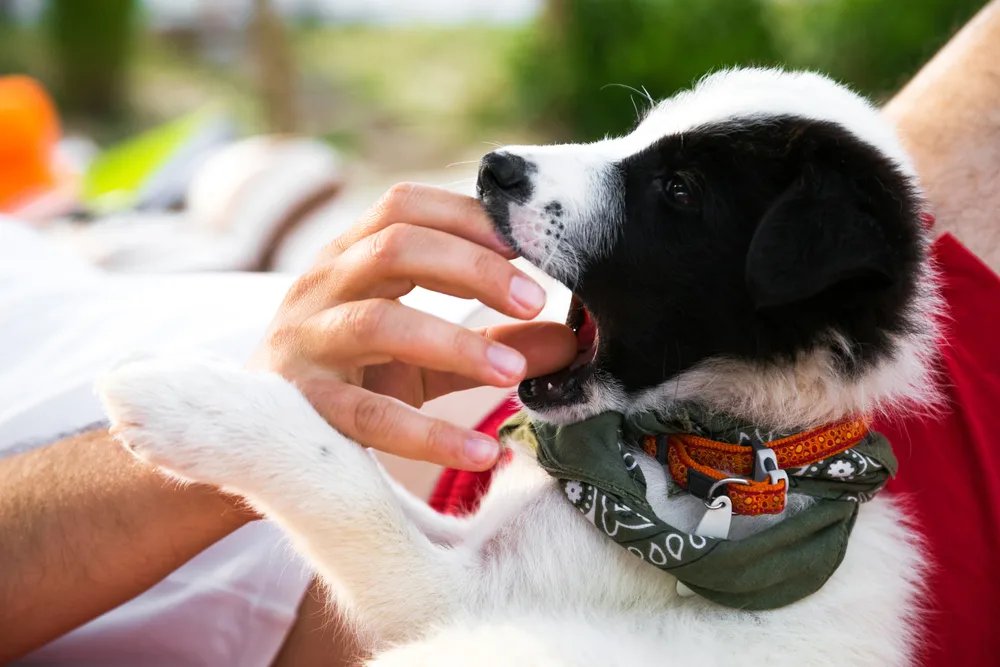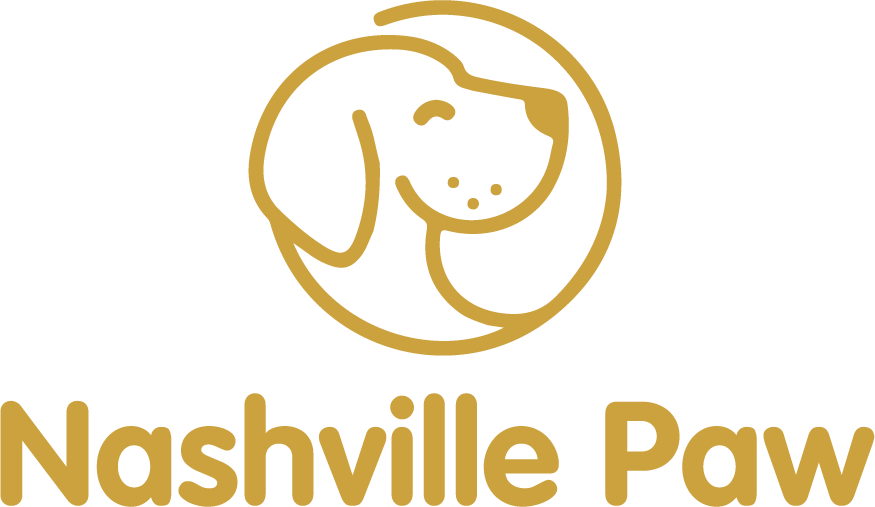Spending time with your dog is one of the joys of dog ownership.
Cuddles, petting, playing or tug of war, and racing around the playground are all fun aspects of owning a pet.
While playing with a dog, he may bite your hands at times.
Teething is a common reason why pups will bite your hands. Similar to how humans feel while they are going through teething. In addition, dogs enjoy chewing because it helps them relax, alleviate stress, or keep them occupied when bored.
To truly understand a dog, one must delve deep into its psyche. It’s much easier to deal with if you know the tricks, and we’re here to help you learn them.
Let us help you come up with a better plan!
What Causes Dogs to Bite?
It has been shown that dogs bite for a variety of reasons, including to relieve stress and stimulate their gums, according to the ASPCA. Chewing is beneficial to dogs in several ways.
The most obvious is that it keeps their teeth and jaws clean and healthy. When dogs are bored or anxious, they will often use chewing to relieve their stress or anxiety by simply distracting themselves.
Unwanted items like furniture, shoes and even our hands aren’t safe for dogs to gnaw on all the time.
What Does It Mean to Bite Your Hand?
If you see a dog biting another dog, it’s a sign that they’re both learning essential lessons about creating and respecting limits.
An eager puppy can continue to react in play behavior when you reach out to touch their heads and bodies since that is what they believe is happening.
This can cause a barrage of thin teeth to pinch at your skin, causing a stinging feeling that can vary from irritating to excruciating.

Why my dog bites my hands is a common question for a dog owner. There are many theories as to why canines might behave this way.
Five common causes of dog biting have been listed here:
Excitement
It could be that it’s attempting to show off its enthusiasm. If it does this more frequently, as when you return home or are going to take him for a walk, this is more likely.
As a result, it might be beneficial to take your hands and attention from it when it begins biting. And to praise it once it has stopped biting.
This behavior may also be observed when s/he approaches a new canine and displays submissiveness.
It’s a Period of Teething

Puppies may have been chewing on things to relieve the pain of teething. If the dog is a baby, it may be doing so to ease the pain of teething.
A greater likelihood of this occurring is if it has also begun biting other objects and doing so suddenly.
In this situation, it would be beneficial to provide it with various chewable items while also beginning to train it to understand how it is expected to act.
Wants Attention
Your dog’s habit of biting your hands and arms may be motivated by a need for attention. If you tend to pay more attention to it when it does this, the likelihood of this happening increases.
This time, it might be beneficial to avoid giving it attention while it does this by standing up, covering your hands and arms, and waiting for it to settle down before giving it attention again.
Sudden loud noises and eardrum-shuddering noises worry dogs, and they will seek consolation. Your dog may bury his head against you in fear as a result of this.
As a Puppy, It Wasn’t Taught To
Even if you did not instruct your canine not to do it as a puppy, it might have picked up on the fact that it is acceptable to chew your hands or arms later on.
If you don’t teach your dog to behave in a particular manner, it will act by its desires. Behaving in the way you expect is not likely to be the case. Because of this, even though it’s an adult, it would benefit from training.
You Have Unintentionally Reinforced the Behavior
It may be doing this because it gets rewarded when it chews your hands or arms, which should stop.
If you try to reward it with things like more attention, sweets, or toys it does, it may become more motivated to do it to receive those rewards.
Rewarding it for not biting your hands is a better strategy. In addition, it would be helpful if we could try to anticipate it and avoid it from doing so, as well as avoid encouraging it when it does so, as we will explore in the following sections.
Your dog may do it due to a medical problem. Another indicator is that when your dog is tired or sick, the dog may stretch a lot.
How to Stop Your Dog from Biting Your Hands
Prevention is usually the best remedy to almost any problem regarding puppies because most dogs chew on their hands out of boredom.
Taking the necessary steps to ensure that their physiological requirements are addressed will go a long way toward eliminating unwanted chewing.
Some dogs require physical exercise to tire them out, while others may require love or one-on-one time in their most prized possession, you! If your dog chews out of boredom, consider satisfying these needs to prevent hand chewing.
According to the American Kennel Club, you may educate your dog to equate not chewing with positively by rewarding him every moment he lets you cuddle him without wrapping his jaws around your hands.
If you see your dog biting or nibbling at your hand while you go for a specific place, stop hoping for that spot and consult with your vet to rule out any potential injuries. A dog in discomfort will almost always defend himself, so keep an eye out for any unusual patterns.
These bite-sized goodies will keep your dog entertained while also making chewing easier. There’s no need to worry about your dog choking on them.
Other undesirable behaviors may happen, such as your dog standing on you. As a result, you can ensure that your canine companion has a secure training session.
I genuinely hope that this has met your expectations.
FAQs
How can you know whether your dog is protecting you?
Defending behavior often indicates that your dog considers you part of its pack. Depending on where you’re sitting, a guarding dog may sit next to the seat, facing away from you, or stand in front of other dogs if you’re nearby.
When you kiss a dog, do they feel it?
Most dogs tolerate owner kisses well. They’ll typically wag their tails, look alert and joyful, and lick you back. Some people may come to equate kisses with affection and care.
For how long does a dog forget its owner?
It takes two to three years for a canine to forget its owner. The dog can instantly recognize the relationship between events, odors, and sounds. A new study shows that dogs recall how their owners put on the harness.
